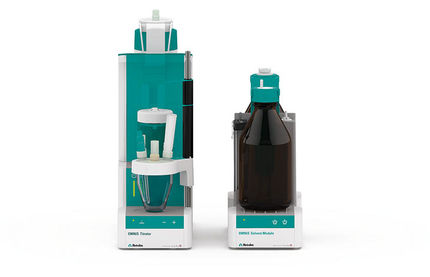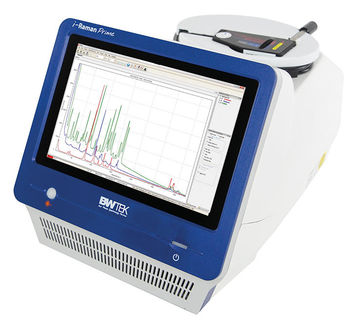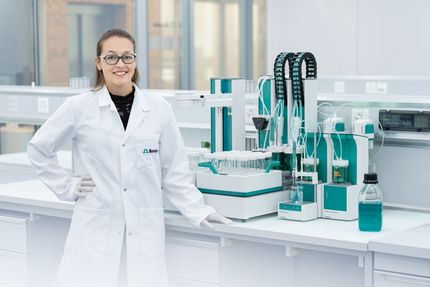To use all functions of this page, please activate cookies in your browser.
my.chemeurope.com
With an accout for my.chemeurope.com you can always see everything at a glance – and you can configure your own website and individual newsletter.
- My watch list
- My saved searches
- My saved topics
- My newsletter
Lost Colony DNA Project
Product highlight
Project BackgroundA new effort to solve the mystery of the Lost Colonies of Roanoke is underway, using historical records, migration patterns, oral histories and DNA testing. The Lost Colony of Roanoke DNA Project was founded by a group lead by Roberta Estes in 2007 to pursue this goal. In 1587, Sir Walter Raleigh sent out over 100 persons; men, women and children, to establish the Cittie of Raleigh on Roanoke Island in present day North Carolina as the first English colony in the New World.[1] The vessel sent back to England three weeks later with the colony's Governor, John White, to obtain desperately needed supplies was subsequently unable to return until 1590.[2] Upon the return of the supply ship, the colony was gone, apparently not destroyed, but removed. The only clue was the name Croatan carved into a tree. John White, whose daughter, son-in-law and grandchild; Virginia Dare, were among the colonists, believed this message meant they had gone to Croatoan Island where their friend Manteo was Chief of the Indians. Some historians say they perished, but clues and rumors persisted for decades that they did not, that they were either captured by or assimilated into the local native population. The Lost Colony of Roanoke DNA Project will seek to discover whether the colonists perished or survived as part of the indigenous culture. DNA Project PlanThe project plan includes the following steps: 1. Locating and testing individuals closely associated with local families whose history implies they are of Native American ancestry, specifically those who lived on the land that is historically associated with Native villages where the colonists would have located. 2. DNA testing descendants of these early inhabitants to determine whether their deep ancestry indicates Native American or Indo-European origins. 3. Work with DNA surname project administrators to determine whether English families of surnames matching those of the Lost Colonists have already been DNA tested. 4. Connecting English families of the same surname to Lost Colonists genealogically. 5. Using DNA, genealogy and history, attempt to connect living descendants to colonists and local Native American tribes. 6. Certify the genealogy of those believed to be connected to the Lost Colony. 7. Reconstructing families of interest using DNA results and genealogy. 8. Tracking population migration using DNA. What happened to the Colonists and the Native population? Where did they go? Who are they and where do they live today? 9. After development of the above data base, DNA testing of archaeologically excavated skeletal remains to determine who they match. Types of DNA TestingThe Lost Colony of Roanoke DNA Project will utilized the following types of DNA Tests: Y Chromosome DNA Testing follows the paternal ancestral line. The paternal line follows the surname. The Y chromosome is passed from father to son, so this kind of testing is conducive to surname projects. This type of testing will be used with those believed to be descendants of those whose surnames are of interest to this project. This type of testing not only links people genealogically, but can indicate individuals of Native American and African ancestry. Mitochondrial DNA (mtdna) testing follows the maternal line and has long been used to track patterns of human migration. It was originally believed that only women pass their mtdna to their children of both genders. It has since been proven that paternal transmission of mtDNA does very rarely occur in human beings. It is possible that knowledge of paternal mtDNA was not available when this project was first started. Mitochondrial DNA is also usually the last surviving DNA, because it is present in larger amounts than nuclear DNA, and so it would likely be the only viable type of testing to use on the skeletons. Autosomal DNA testing is different from yline and mtdna. Autosomal DNA is the DNA where you receive 50% from each parent (as opposed to yline and mtdna where there is no dna from the other parent involved). Because of this 50% mixture rate from each generation, autosomal DNA testing today is not reliably relevant for genealogical testing. The data bases available for autosomal comparison for genealogical purposes are not yet mature. At this point, the Lost Colony DNA Project will not be actively pursuing autosomal testing, but will gladly include those tests in our records for those who have already individually tested. In time, we will learn more about how genes are inherited, the data bases will ripen, and at that time, autosomal testing will be reconsided. Names of Interest Names of Interest can be found on the Searching for the Lost Colony DNA blog site: http://www.the-lost-colony.blogspot.com References1. Set Faire for Roanoke: Voyages and Colonies 1584-1590 by David Beers Quinn 2. Roanoke Island: the Beginnings of English America by David Stick See Also:
External Links
|
|
| This article is licensed under the GNU Free Documentation License. It uses material from the Wikipedia article "Lost_Colony_DNA_Project". A list of authors is available in Wikipedia. |







